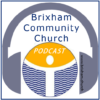Jon Petts – The Devil’s Playbook – Despondency
Sermon Notes:
So far:
What a playbook is and that the devil has one. We are not unaware of his schemes. He comes to kill, steal and destroy, he is roaming like a roaring lion seeking whom he may devour. We do not battle with flesh and blood but with unseen powers.
- Distraction – from loving God, people to all sorts of things to do with lust and pride
- Doubt – doubting God and his character
This time:
- Despondency
Next time:
- Division
When we looked at distraction, we saw that the enemy comes in the way of our preferred focus of loving God, loving people and making disciples. He comes with the lust of the flesh – things that appeal to our emotions, the lust of the eyes – things that distract with instant appeal and the pride of life – things that make us look better to other people and ourselves, but not to God.
When we studied doubt we saw that this tool of the devil has a two-pronged attack – first to see if we can doubt God’s existence and if that doesn’t work to doubt his character. For the believer these doubts all start when we neglect God’s word and our relationship with him.
In all these sections, let us remember that we are here to win.
Let us run with perseverance the race marked out for us, fixing our eyes on Jesus, the pioneer and perfecter of faith. For the joy that was set before him he endured the cross, scorning its shame, and sat down at the right hand of the throne of God. (Hebrews 12:1-2)
But the idea of doubt last time links well into this week’s topic – despondency.
Despondency
“Low spirits from loss of hope or courage.”
It’s what David felt when he cried out to God in the Psalms, it’s what Bunyan wrote about in Pilgrim’s Progress where he referred to the Slough of Despond, or swamp of despair.
There are times in life when everything seems to be against us physically or emotionally or both and we just can’t face any more. It feels like there is no way out of the darkness.
- Work stress
- Exam stress
- Family crisis
- Empty nest syndrome
- Death of a loved one
- Financial problems
- Illness
- Mental health
- Delay in God’s rescue
- Disappointment with the way things turned out
- Good things that didn’t happen
- Bad things that did
Everybody has times of despondency and it’s not a sin. Jesus sweat drops of blood in the garden of Gethsemane. What is a sin is neglecting God and what he has to say to you in these situations. Let’s look at one bible character in particular. We will learn some vital lessons, partly from his mistakes.
1 Kings 19
1 Now Ahab told Jezebel everything Elijah had done and how he had killed all the prophets with the sword.
Back story – Mount Carmel – Repairing God’s altar – Ahab and Jezebel
2 So Jezebel sent a messenger to Elijah to say, “May the gods deal with me, be it ever so severely, if by this time tomorrow I do not make your life like that of one of them.”
Who cares what ‘the gods’ think? They are the false idols you’ve just disproved! This should not affect Elijah. He’s just had a mighty victory over any other gods.
3 Elijah was afraid and ran for his life.
Depression and despair are real. They come when we least expect it, although there are signs. And one of the warnings is after a great event, a hilltop moment. It’s normal to feel polarised emotions. The anti-climax. Fear is one of the threads that bind the devil’s playbook together. Doubt leads to fear, despair is based on fear. It’s a basic human emotion.
When he came to Beersheba in Judah,
This is over 100 miles away! Most of God’s advice in the bible is to stand firm in battle. There are times to flee, but this was not one of them. You have seen a victory. You will get a counter-attack. Don’t run. Hold your nerve. Stand. Having done all, to stand.
he left his servant there, 4 while he himself went a day’s journey into the wilderness.
Here’s what not to do when you notice yourself rebounding from a high to a low, or you can sense any kind of low coming. Isolate yourself. Elijah has a companion, perhaps the same guy who went running off to look for a cloud and saw the cloud the size of a man’s hand, etc. I imagine he’d be good company at a time like this. Keep people close to you who have journeyed with you and seen God’s hand at work.
Be that person who journeys with the mentally ill, the anxious, the depressed. Walk with them, refuse to stay behind when they leave you for the wilderness.
He came to a broom bush, sat down under it and prayed that he might die.“I have had enough, Lord,” he said. “Take my life; I am no better than my ancestors.” 5 Then he lay down under the bush and fell asleep.
Have you ever prayed that you might die? Have you ever wished you could end it all? God is wanting to meet you at the point of your need.
In Pilgrim’s Progress, Christian was met at the Slough of Despond by a man called Help. Some of us are called to the ministry of helps. And the Holy Spirit is the greatest helper that must empower us to do so.
All at once an angel touched him and said, “Get up and eat.” 6 He looked around, and there by his head was some bread baked over hot coals, and a jar of water. He ate and drank and then lay down again.
When you are in despair, eat the food that the Lord supplies. There are times when twee bible verses will not do. But if you have been feeding on the word beforehand you can draw on it. Dr Caroline Leaf says that she does not use the scriptures as a Band Aid. They need to be absorbed every day so that they can be lived out.
Receive help. You may want to die. That may not be God’s plan. So take what he sends. It may be the offer of meeting someone for coffee, or a chance to receive practical help. Don’t be too proud to accept help.
7 The angel of the Lord came back a second time and touched him and said, “Get up and eat, for the journey is too much for you.”
What journey? Where to? Elijah obviously knows where he should be or the angel would have told him. But he lets Elijah think for himself. I believe he was meant to go back to where he came from. He had run away. He had work to do for God back where he came from in Samaria. I think the angel was implying that Elijah was meant to go home.
8 So he got up and ate and drank. Strengthened by that food, he travelled forty days and forty nights until he reached Horeb, the mountain of God. 9 There he went into a cave and spent the night.
It’s tempting to go back to the special places and seek God where you know he has been found before. But sometimes he has other plans. Thus, the question…
And the word of the Lord came to him: “What are you doing here, Elijah?”
10 He replied, “I have been very zealous for the Lord God Almighty. The Israelites have rejected your covenant, torn down your altars, and put your prophets to death with the sword. I am the only one left, and now they are trying to kill me too.”
Let it out! This is a good thing, even if it’s not true what Elijah is saying. He’s not the only one left. Others have been hiding in caves. Also, he rebuilt the altar of the Lord in the last chapter. But it’s better to let it out. If we don’t let out how we feel in a healthy way, we will act it out in an unhealthy way, and that’s not fair on the people around us. God is a good listener.
11 The Lord said, “Go out and stand on the mountain in the presence of the Lord, for the Lord is about to pass by.”
Then a great and powerful wind tore the mountains apart and shattered the rocks before the Lord, but the Lord was not in the wind. After the wind there was an earthquake, but the Lord was not in the earthquake. 12 After the earthquake came a fire, but the Lord was not in the fire. And after the fire came a gentle whisper. 13 When Elijah heard it, he pulled his cloak over his face and went out and stood at the mouth of the cave.
Sometimes God does not speak the way we want him to, or the way he has in the past. “I wonder if God is saying to Elijah, look, I am not in the wind, fire or earthquake like I was with Moses and others, you should not be here at Horeb, even though this place is where I met with Moses, and others.” In the following contrasting silence, the deafening truth behind the question arises, “What are you doing here? I am not here for you in the way that I was with you on Carmel and will be with you where you are meant to be.” God’s power is present for us when we are about his purpose. Elijah is supposed to be taking on the evil monarchy but he has fled to that familiar place where God may be found. But God is not to be found here in the way Elijah wishes because Elijah is not meant to be here!
Then a voice said to him, “What are you doing here, Elijah?”
14 He replied, “I have been very zealous for the Lord God Almighty. The Israelites have rejected your covenant, torn down your altars, and put your prophets to death with the sword. I am the only one left, and now they are trying to kill me too.”
15 The Lord said to him, “Go back the way you came…”
God’s plan is always for restoration. It may be difficult to go back. It may feel like a backwards step. But God has a plan for your life. He wants to get you back on track. He will listen to your complaint, the cry of your heart. But he knows that you will be happiest and most fulfilled when you are doing what he made you to do. Here he instructs Elijah to go back in the status of Prophet and anoint a new king and invest in the next generation. He may have run away but God wants to return him to his correct purpose. He wants to do the same for you.
Summary:
- Don’t be afraid. Elijah was. He was wrong. God has not given us a spirit of fear, but love, power and a sound mind.
- Don’t run away or isolate yourself. Elijah did. Stay close to people that can help, especially those who know God and have journeyed with you already, e.g. Elijah’s servant.
- Feed from God’s word and his provision
- Receive help.
- Don’t assume God will speak the same way twice. He was not in the earthquake, etc.
- Let it all out, don’t bottle it up. Don’t feel bad for feeling bad. God does not expect us to be happy all the time. There is a time for everything. Grief is important. God wants you to face it not fake it. But the devil wants to keep you in grief and despair. This is the difference between moaning and mourning. But if life at the moment is not good, be honest about it. God’s OK with that. Even Jesus was honest about his emotional torment. Elijah had a good old moan to God, even though his moans were inaccurate. God did not correct his words but he did direct his paths.
- Believe that God’s plan is always to restore.
- For those not in despair – be the companion on someone’s journey. Don’t judge someone who is in despair. Love them. Help them out if possible but be aware that sometimes things take time.
Conclusion
Elijah was just an ordinary human being. We know this from 1 Kings 19. He had his downs as well as his ups. Yet he prayed earnestly and saw God move. Let’s pray for God to move in our lives and the lives of those around us. Let’s be willing to help those with mental health issues, with a feeling of despondency, and those who are under genuine attack from the devil, who would have us stay in the pit and not come out. Let’s be salt and light and show the way to a God who can restore every heart that is broken.
Podcast: Play in new window | Download | Embed
Subscribe: RSS


